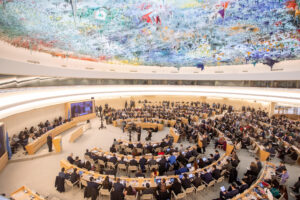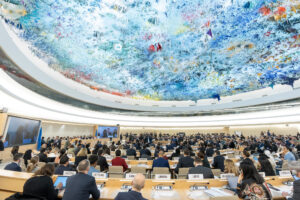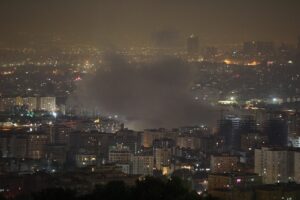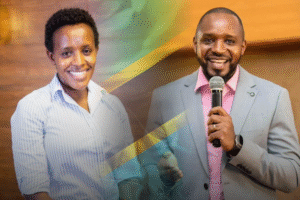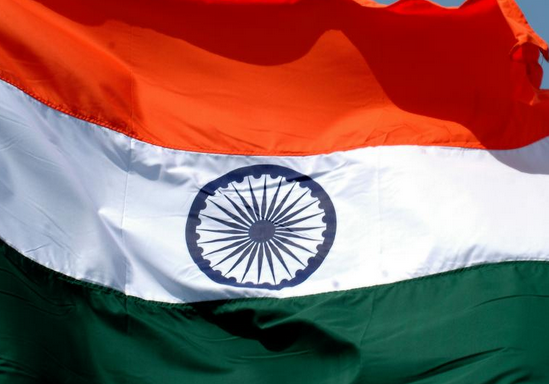
Sep 16, 2016 | Advocacy, Non-legal submissions
On 16 September 2016, the ICJ made a submission to the Universal Periodic Review of India.
The submission brings to the attention of the members of the Human Rights Council’s Working Group on the UPR issues concerning:
- discrimination and violence based on sexual orientation and gender identity;
- death penalty;
- impunity and accountability;
- freedom of speech, expression and association;
- ratification and implementation of international human rights instruments.
india-icj-upr-submission-advocay-non-legal-submission-2016-eng (full text in PDF)
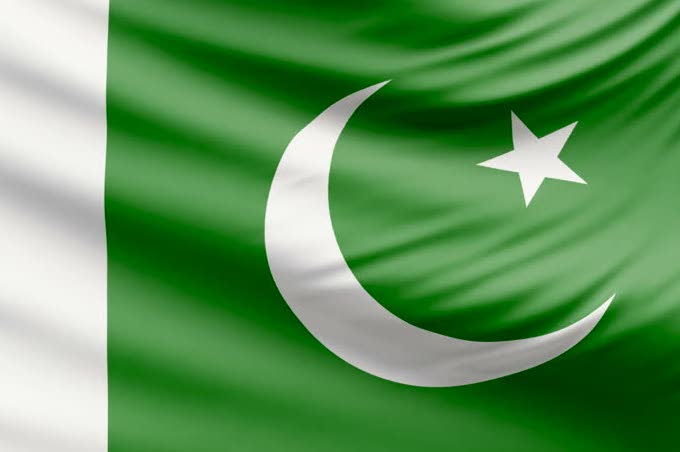
Sep 15, 2016 | Advocacy, Non-legal submissions
The ICJ, with support of the NGO the Human Rights Commission of Pakistan (HRCP), spoke at the UN Human Rights Council today on the continuing problem of enforced disappearances in Pakistan.
The statement was delivered during an interactive dialogue with the Working Group on Enforced or Involuntary Disappearances.
The ICJ, with support of the Human Rights Commission of Pakistan (HRCP), welcomed the Working Group’s follow-up report on recommendations from its 2012 visit to Pakistan, and stated further as follows:
The practice of enforced disappearance has persisted and expanded since the Working Group’s visit. Previously restricted mainly to Balochistan, the Federally Administered Tribal Areas and Khyber Pakhtunkhwa, enforced disappearances are now a nation-wide phenomenon.
In August 2015, Zeenat Shahzadi, a Pakistani journalist, went “missing” from Lahore, a rare case of alleged enforced disappearance of a woman.
Estimates of the overall number of cases of enforced disappearance vary. The official Commission of Inquiry on Enforced Disappearances has reported nearly 1,400 unresolved cases.
The HRCP, an NGO that documents human rights violations in 60 districts, has reported 370 cases of enforced disappearance since 2014.
Other NGOs claim between 5,000 to 18,000 cases. Even by the most conservative estimates, a significant number of enforced disappearances remain unresolved.
The Government has not brought perpetrators to account in even a single case of enforced disappearance. Rather than effective measures to prevent the practice or to strengthen existing accountability mechanisms, recent legislation actually facilitates enforced disappearances.
In January 2015, Pakistan empowered military courts to try civilians for terrorism-related offences. These courts have since sentenced at least 100 people to death, and at least 12 have been hanged, after grossly unfair trials without possibility of appeal to any civilian courts, including the Supreme Court.
Families allege that some of those tried had been subjected to enforced disappearance by military authorities, and military control over the proceedings leaves the family and victim without effective remedy.
Victims’ groups, lawyers, and activists working on enforced disappearance also continue to face security risks including attacks, harassment, surveillance, and intimidation.
The ICJ and HRCP commend the Working Group for its systematic follow-up, which can have a positive impact, and urge the Working Group to continue to monitor and report on the situation in Pakistan.
The statement may be downloaded in PDF format here: hrc33-oralstatement-disappearances-pakistan-15092016
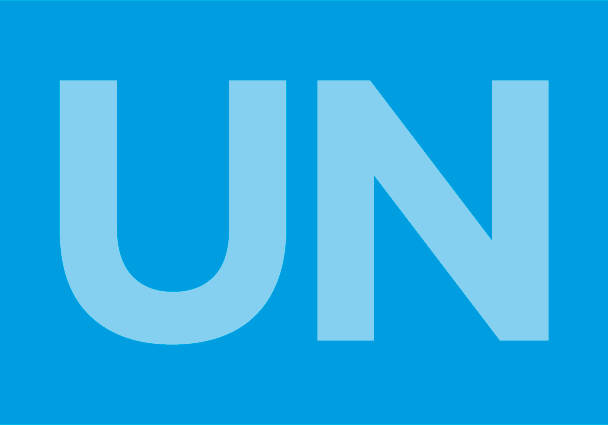
Sep 14, 2016 | Events
This panel discussion features two Iraqi torture survivors, Salah Hassan Nsaif and Ali Shallal Abbas, who will share their first-hand accounts serious abuse suffered at Iraq’s notorious Abu Ghraib prison, and the role of U.S. contractors in that torture and abuse.
The event organised by the International Commission of Jurists, the International Federation of Human Rights (FIDH), and the Center for Constitutional Rights, takes place 15 September 2016, 11:00-12:00, at the Palais des Nations Room XXVII in Geneva, Switzerland.
CCR Senior Staff Attorney Katherine Gallagher will discuss legal cases, Saleh v Titan and Al Shimari v CACI, brought in the United States on behalf of victims as they seek justice. The cases will be placed in context of broader corporate accountability efforts, including those of the UN Working Group on Mercenaries and the Open-Ended Working Group on a legally binding instrument on transnational corporations and other business enterprises.
Speakers:
Salah Hassan, journalist and photographer for Al Jazeera network and Abu Ghraib torture survivor
Ali Shallal Abbas, Founder and President of the Association of victims of the American and Iranian prisons in Iraq, and Abu Ghraib torture survivor
Katherine Gallagher, Senior Staff Attorney, Center for Constitutional Rights
Carlos Lopez, Senior Legal Adviser, Business and Human Rights, International Commission of Jurists (moderator)
Remarks will also be made by Patricia Arias, Chair of the UN Working Group on Mercenaries.
Following the event, there will be the opening of an art exhibit organized by the UN Working Group on the use of mercenaries. Ms. Arias, Mr. Nsaif, and Mr. Abbas will make remarks, and guests are invited to engage with the photographs, multimedia display, and virtual reality film. The exhibit is open to delegates, NGOs, and the public. “Private Actors in Warfare: Stories from victims of private military and security companies and foreign fighters” will take place at 13:00 – 15:00 in Palais des Nations Room XXIII.
A flyer for the event may be downloaded, in PDF format, here: side-event-pmsc-abu-graib-sept2016
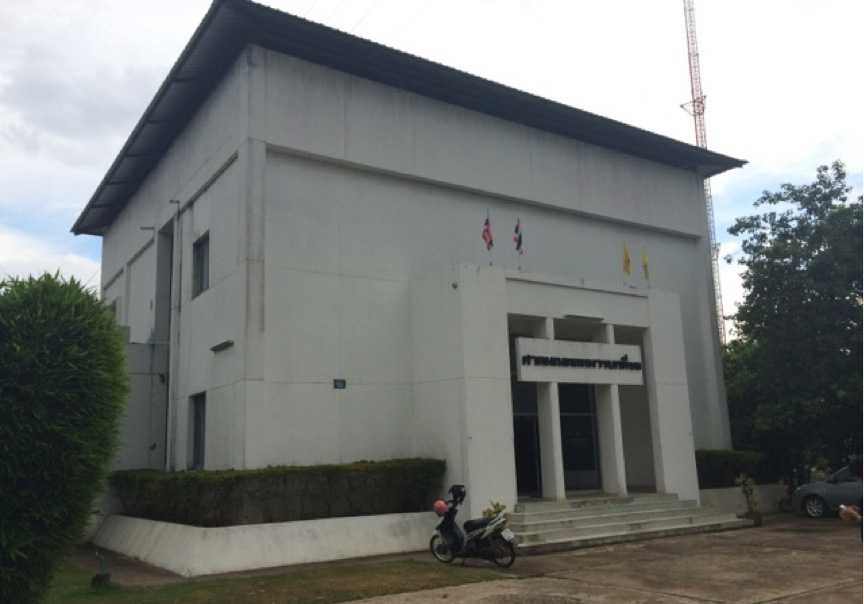
Sep 12, 2016 | News
The Thai junta’s Order today phasing out the prosecution of civilians in military courts is a welcome step but the military government must do much more to comply with its international human rights obligations, said the ICJ today.
Head of the National Council for Peace and Order (NCPO) Order 55/2016, dated 12 September 2016 and issued under Article 44 of the Interim Constitution, phases out the heavily criticized practice of prosecuting civilians before military courts for four categories of offences, including offences against internal security; violation of NCPO orders; possession and use of war weapons; and the highly punitive offence of lese majeste.
The Order only applies to offences committed from the date the Order comes into force – today – and not to past or pending cases.
Since the May 2014 coup, at least 1,811 civilians have been tried in Military Courts, based on information the Judge Advocate General’s Department (JAG) provided to Thai Lawyers For Human Rights (TLHR) in July 2016 and covering the period 22 May 2014 to 31 May 2016.
“Almost 2,000 civilians have faced an unjust process and unfair trials before military tribunals, many of whom were prosecuted simply for exercising their rights to freedom of expression and assembly,” said Sam Zarifi, Asia Director at the ICJ. “All pending cases should be transferred to civilian courts and the convictions of all civilians prosecuted in military courts since the 2014 coup should be set aside.”
Head of the NCPO Order 55/2016 also explicitly affirms that the deeply problematic Head of the NCPO Orders 3/2015 (which replaced nationwide Martial Law on 1 April 2015) and 13/2016 shall remain in force.
These Orders prohibit the gathering of more than five people for political purposes; allow for the detention of civilians in military facilities for up to seven days without charge; and provide appointed “Prevention and Suppression Officers” and their assistants, drawn from the commissioned ranks of the Armed Forces, including the paramilitary Ranger Volunteers, with wide-ranging powers to prevent and suppress 27 categories of crimes including against public peace, liberty and reputation, immigration, human trafficking, narcotics, and weapons. The ICJ considers that these orders are not in accordance with Thailand’s international human rights obligations
“Its now crucial for the military to return responsibility for law enforcement to civilian authorities, and ensure they are properly trained and competent,” Zarifi said. “We hope today’s Order is a step toward returning Thailand to the rule of law and respect for human rights.”
Background
Clause 3 of Head of the NCPO Order 55/2016 notes “As appropriate, the Prime Minister may propose to the National Council for Peace and Order to amend this Order.”
Previously, NCPO Announcements 37/2014, 38/2014 and 50/2014 extended the jurisdiction of Thailand’s military courts to four categories of offences, including offences against internal security, violation of NCPO orders, possession and use of war weapons, and lese majeste.
The prosecution of civilians in military courts is inconsistent with Article 14 of the International Covenant on Civil and Political Rights (ICCPR) – to which Thailand is a State Party – which affirms that everyone has the right to a “fair and public hearing by a competent, independent and impartial tribunal established by law.”
The Principles Governing the Administration of Justice through Military Tribunals sets out principles that apply to state use of military tribunals. Principle 5 states “Military courts should, in principle, have no jurisdiction to try civilians. In all circumstances, the State shall ensure that civilians accused of a criminal offence of any nature are tried by civilian courts.”
Contact:
Sam Zarifi, ICJ Asia Pacific Regional Director (Bangkok), t: +66 807819002; e: sam.zarifi(a)icj.org
Kingsley Abbott, ICJ Senior International Legal Adviser, t: +66 9 4470 1345, e: kingsley.abbott(a)icj.org
Download:
thailand-unofficial-translation-head-of-ncpo-order-55_2559-advocacy-2016-eng (full text of Order in English, PDF)
thailand-ncpo-order-55_2559-news-2016-tha (full text of news in Thai, PDF)
Read also:
Thailand: transfer all civilians to civilian courts
Thailand: end prosecution of civilians in military tribunals
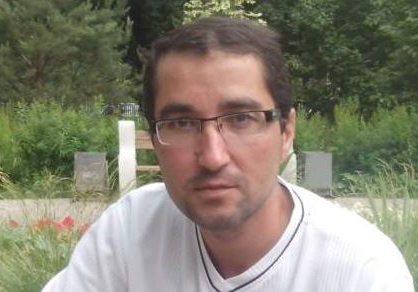
Sep 6, 2016 | Новости, Статьи
МКЮ выражает сожаление в связи с задержанием и арестом, по спорному обвинению, адвоката из Таджикистана Джамшеда Ёрова.
Адвокат был задержан 22 августа 2016 года и помещен под стражу на два месяца в следственный изолятор г. Душанбе.
Его обвиняют в «раскрытии государственной тайны» по статье 311 часть 1 Уголовного кодекса Таджикистана.
Джамшед Ёров был задержан в понедельник, 22 августа 2016 года. На следующий день Ёров позвонил родственникам, которым сообщил, что находится в полиции под арестом и что его допрашивают в связи с предположительной публикацией в интернете текста засекреченного приговора.
Данный приговор был вынесен по делу тринадцати руководителей и трех членов Партии исламского возрождения Таджикистана (ПИВТ), которые 2 июня 2016 года были приговорены к различным срокам лишения свободы, вплоть до пожизненного.
Джамшед Ёров был защитником Махмадали Хаита, одного из руководителей ПИВТ, получившего пожизненный срок.
МКЮ обеспокоена тем, что решение об аресте Джамшеда Ёрова может быть реакцией на законное осуществление адвокатом своих профессиональных функций по защите Хаита.
Любые подобные неправомерные действия противоречили бы фундаментальному правилу верховенства закона, отраженному в Основных принципах ООН, касающихся роли юристов, в соответствии с которым адвокаты не должны отождествляться со своими клиентами или интересами своих клиентов в результате выполнения ими своих функций.
Кроме того, адвокаты должны иметь возможность выполнять все свои профессиональные обязанности в обстановке, свободной от угроз, препятствий, запугивания или неоправданного вмешательства.
Основные принципы ООН устанавливают, что адвокаты не должны подвергаться судебному преследованию и судебным, административным, экономическим или другим санкциям за любые действия, совершенные в соответствии с признанными профессиональными обязанностями, нормами и этикой, а также угрозам такого преследования и санкций.
МКЮ призывает власти Таджикистана к соблюдению всех международно-правовых обязательств Таджикистана по защите прав человека, в том числе права на справедливое судебное разбирательство, в отношении Джамшеда Ёрова.
В соответствии с правом на свободу, закрепленным в статье 9 Международного пакта о гражданских и политических правах (МПГПП), досудебное содержание под стражей может применяться лишь в исключительных случаях, в качестве крайней меры, и при любых обстоятельствах у соответствующего лица должна иметься возможность ходатайствовать об освобождении под залог.
При производстве по делу Джамшеда Ёрова необходимо всячески принимать во внимание его профессиональные обязанности защитника, а также следует обеспечить, чтобы он не подвергался уголовным или административным санкциям за выполнение своих обязанностей.
МКЮ также обеспокоена тем, что арест адвоката предположительно связан с публикацией «секретного» приговора.
Пункт 1 статьи 14 МПГПП, которая гарантирует право на справедливое судебное разбирательство, предусматривает, что любое судебное постановление должно быть публичным, за исключением тех случаев, когда интересы несовершеннолетних требуют иного или когда дело касается матримониальных споров или опеки над детьми.
В целом, международные стандарты гарантируют право каждого искать, получать, использовать и распространять информацию, которой располагают государственные органы или иные лица, выступающие в качестве их представителей, либо доступ к которой закон предоставляет государственным органам.
Несмотря на наличие некоторых исключений, связанных с соображениями национальной безопасности, они применяются в ограниченных пределах, при условии соблюдения ряда гарантий, которые, как представляется, не были соблюдены по данному делу.
Справочная информация
Данный арест является продолжением серии арестов адвокатов в 2014-2016 гг., которые вызывают серьезную обеспокоенность в связи с защитой права на справедливое судебное разбирательство и соблюдение международных стандартов, касающихся роли юристов, в Таджикистане.
Данные задержания, в том числе арест Джамшеда Ёрова, могут оказать значительное негативное воздействие на готовность защитников представлять клиентов по делам, которым приписывается особая важность, особенно по обвинениям в посягательстве на интересы государственной безопасности, которые рассматриваются в закрытом судебном заседании.
Джамшед Ёров является братом Бузургмехра Ёрова, который был задержан в ноябре 2015 года, а до ареста осуществлял защиту семи членов Политсовета ПИВТ.
Бузургмехр Ёров до сих пор содержится в следственном изоляторе вместе с еще одним адвокатом, Нуриддином Махамовым, который также представлял интересы ПИВТ и был заключен под арест в ноябре 2015 года. Судебное разбирательство по их делу еще не окончено.
МКЮ и другие международные НКО уже выражали обеспокоенность в связи с тем, что данное дело также может быть связано с выполнением адвокатами своих профессиональных функций.
Ранее МКЮ выразила обеспокоенность в связи с осуждением адвоката Шухрата Кудратова по обвинению в мошенничестве и даче взятки. 13 января 2015 года Кудратов был приговорен к девяти года лишения свободы. Несмотря на сообщения о возможной амнистии, обвинительный приговор по его делу остается в силе.
tajikistan-lawyer-yorov-case-news-web-stories-2016-rus (полный текст на русском, PDF)






